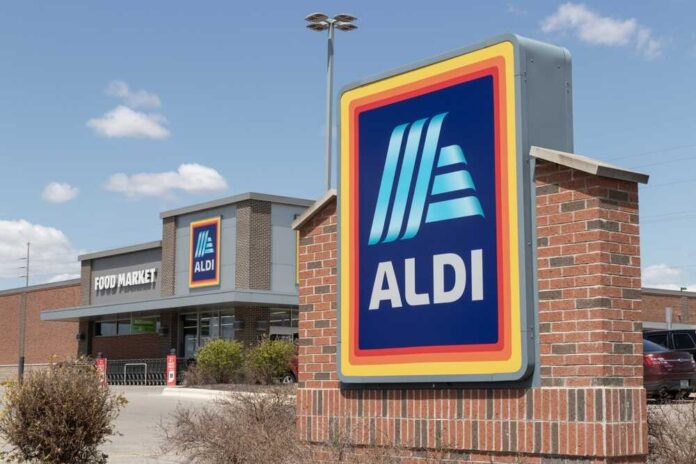In their pursuit of being “the most sustainable supermarket chain,” the rapidly expanding supermarket chain Aldi in the United States has become the first significant American shop to do away with plastic bags entirely.
The change will save nine million pounds of plastic, which is the same as twenty Statues of Liberty filled with plastic. According to Emily Wiora, Aldi’s Director of sustainability, the company aims to ensure consumers can afford sustainable options.
Before this year, customers at Aldi could choose between plastic, reusable, or paper bags for purchase; however, the supermarket has never provided plastic bags at no cost. By doing away with plastic, they want to prevent 15 billion bags from ending up in landfills and the ocean. Additionally, by 2035, the firm hopes to have achieved its environmental goals by switching to natural refrigerants in its US locations. Natural refrigerants are already in use at more than 600 of its retail locations.
By 2025, Aldi plans to have all their packaging be recyclable, reused, or compostable. So, for instance, instead of using a non-recyclable plastic window that may pollute the paper recycling stream, their pasta supplier switched to a 100% recyclable box. Many of their products and services have alternatives that they are still testing.
Sustainability is an integral part of Aldi’s sourcing process. Aldi naturally has less waste than other supermarkets due to its small product selection, less produce, and lack of a deli. Donations are made to Feeding America for any edible surplus. Natural refrigerants, which produce less pollution, will be installed in all new stores.
Solar panels have been installed in over 200 Aldi stores, allowing the company to power all locations with sustainable energy. According to Aldi CEO Jason Hart, some of these adjustments benefit the environment while simultaneously lowering costs, which the company passes on to consumers.














